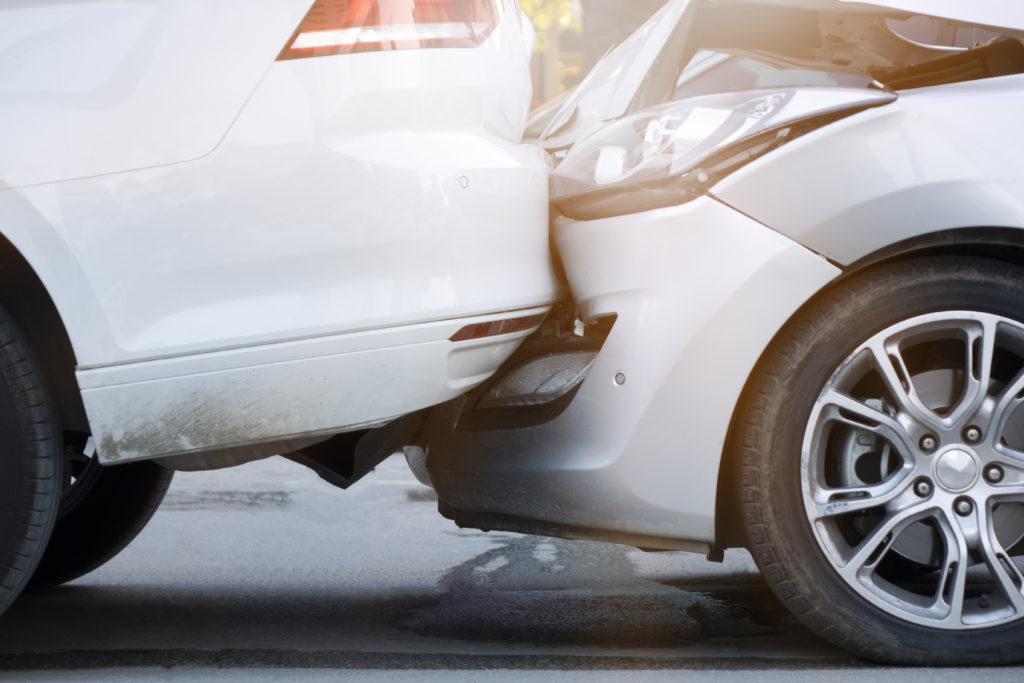
It is possible to follow all the rules of the road and still find yourself in a motor vehicle collision. If another driver acts unreasonably and crashes into your car, damaging your vehicle, you can make a claim to insurance for property damage. There are a few things that need to be considered before determining who actually pays.
Who caused the damage?
In Illinois, you can make a claim against another driver’s car insurance policy for your property damage if that person was responsible for the crash. If you have collision coverage on your own policy, you can seek compensation that way, too. It is usually your choice as to which policy to request payment from. Here is a list of a few things you can expect depending on which route you take:
Your Insurance
- There may be less of a wait because your car insurance company will generally pay for the damage to your car without having to determine who is at fault in a crash. You contracted with that company to provide coverage for the possibility of your car being damaged. That is what it’s there for.
- If you choose your policy to pay for your property damage, you will most likely have to pay your own deductible. $500 is a common deductible amount for auto collision policies in Illinois. That is the portion you have to pay out of pocket when your car insurance company pays for your property damage. If the other driver is at fault for the crash that caused damage to your car, your insurance company may be able to recover your deductible from the other driver’s insurance and reimburse you.
- If you purchased minimal insurance that only provides liability coverage and no collision coverage, your car insurance company is not obligated to pay for your car regardless of how it was damaged. In this scenario, for the other driver’s insurance company to voluntarily pay for your property damage, they will likely have to accept full responsibility for the collision on behalf of their insured. Without either an admission of fault by the other side or a determination of fault you may not be able to recover your damages from insurance. For this reason, it’s always better to purchase collision coverage if you can afford it.
The Other Party’s Insurance
- Regardless of how a crash occurs, insurance companies want to determine the estimated cost of repairs or a total loss before issuing any payments. When dealing with another party’s insurance policy, the process of scheduling an inspection can get delayed if the adjuster has not completed his or her investigation or determined who was responsible for the crash.
- An insurance adjuster for the other driver might decide that he or she thinks you are partly to blame for a crash and will want to discount their property damage compensation offer accordingly.
- If the other party’s insurance accepts full responsibility for a crash, you will not have to pay a deductible.
What is my car worth?
If your vehicle is determined to be a total loss after a crash, an insurance company will be unlikely to pay for it to be repaired. Instead, as long as the damage is covered by the policy, the company will issue a check for the value of the car before it was essentially destroyed. In other words, if a car is damaged so much that the cost of repairs is more than what the car is worth, it’s considered a total loss.
The value of the car is based on what you could get for it if you were to sell it. Put another way, it’s the market value. That is why it’s important, when financing a car, to make sure you have adequate insurance coverage for collisions and, not to borrow more money to pay for a car than what the car is worth. If you borrow money from a bank, credit union, or dealership to pay for a car and it gets wrecked in a crash, you will have to pay back the money you borrowed to finance the car regardless of how much the car is worth. The loan amount and the value of the car are two separate things that don’t always match up. You may want to consider this when you are looking to purchase a new or used ride.
The bottom line is that it’s wise to purchase as much insurance coverage as your budget will allow. It’s better to have it and not need it than to need it and not have it.
Reader Interactions